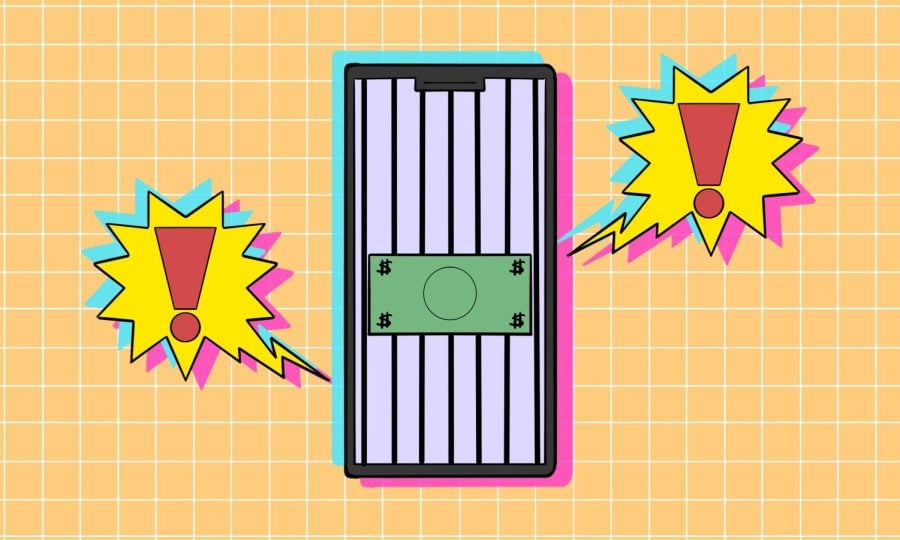Pretrial Fairness Act comes to unexpected halt as Illinois passes more criminal justice reform legislation
Daily file illustration by Olivia Abeyta
The Pretrial Fairness Act would eliminate cash bail statewide.
January 12, 2023
Content warning: This article contains mentions of child sexual assault.
Illinois was set to be the first state to eliminate cash bail at the start of this year, but a December circuit court ruling halted the reform.
The Pretrial Fairness Act would allow defendants to be released as they await trial, rather than having to pay a cash bond for release — as long as they don’t pose a threat to others or a risk of fleeing.
But the Kankakee County circuit court ruled that the Pretrial Fairness Act violates the powers given to the judiciary by the state’s constitution, preventing the change from being implemented. State Attorney General Kwame Raoul announced on Dec. 30 that he would appeal the lower court’s decision to stay the act.
Without the Pretrial Fairness Act, low-income people accused of low-level crimes will continue to suffer in custody while wealthy people can be free, said Darlene Cannon, a member of Citizens Network of Protection and 2nd Ward aldermanic candidate.
“It’s a matter of the haves and the have-nots,” Cannon said. “The people who are being forced to stay in jail are Black and brown people.”
For now, individual counties can decide whether they follow the Pretrial Fairness Act, Prtizker Prof. Juliet Sorensen said. According to WTTW, Chicago’s local PBS affiliate, 65 of Illinois’ 102 counties chose to keep cash bail.
The judge’s ruling also determined the Illinois legislature should have put the measure up for a referendum vote.
The State Supreme Court’s timing should not be seen as an indicator of whether it will uphold or overturn the law, Sorensen added.
“The (Illinois) Supreme Court is merely delaying the implementation of a law while it does what it’s entitled to do, which is review its constitutionality,” she said.
Many conservative politicians have criticized the law as making Illinois unsafe. But Sorensen said New Jersey, which has dramatically reduced its practice of cash bail, saw the opposite effect.
Cannon said she has seen many ads arguing the elimination of cash bail will free “murderers and rapists,” a claim she called misleading. Under the act, a defendant does not qualify for pretrial release if there is a determined risk of fleeing or threat to others, such as in stalking or sexual abuse cases.
“This is about smaller, non-threatening crimes,” Cannon said.
As the court considers the case, the Illinois legislature passed a bipartisan bill Tuesday night abolishing life imprisonment without the possibility of parole for people ages 20 and younger. The bill excludes anyone convicted of predatory criminal sexual assault of a child.
This marks a significant change for the state: Illinois abolished parole in 1978, so prisoners eligible for parole either were sentenced before 1978 or qualify for youthful parole.
“Illinois is one of the few states in the country that there are virtually no ways out (of prison),” said Alissa Rivera, communications director for Restore Justice, a group working toward ending mandatory minimum sentences.
Sentencing a child to die in prison with no parole review is a violation of the United Nation Convention on the Rights of the Child, she said.
But if cash bail is abolished, advocates for the Pretrial Fairness Act said fewer families would suffer. Cannon said she met a man in Springfield whose family became unhoused after he was arrested and put in jail for missing his court date due to an unpaid parking ticket.
“(The act) is moving the needle in the right direction,” Cannon said.
Email: [email protected]
Twitter: @KristenAxtman1
Related Stories:
— Illinois gubernatorial candidates Pritzker and Bailey debate cash bail












